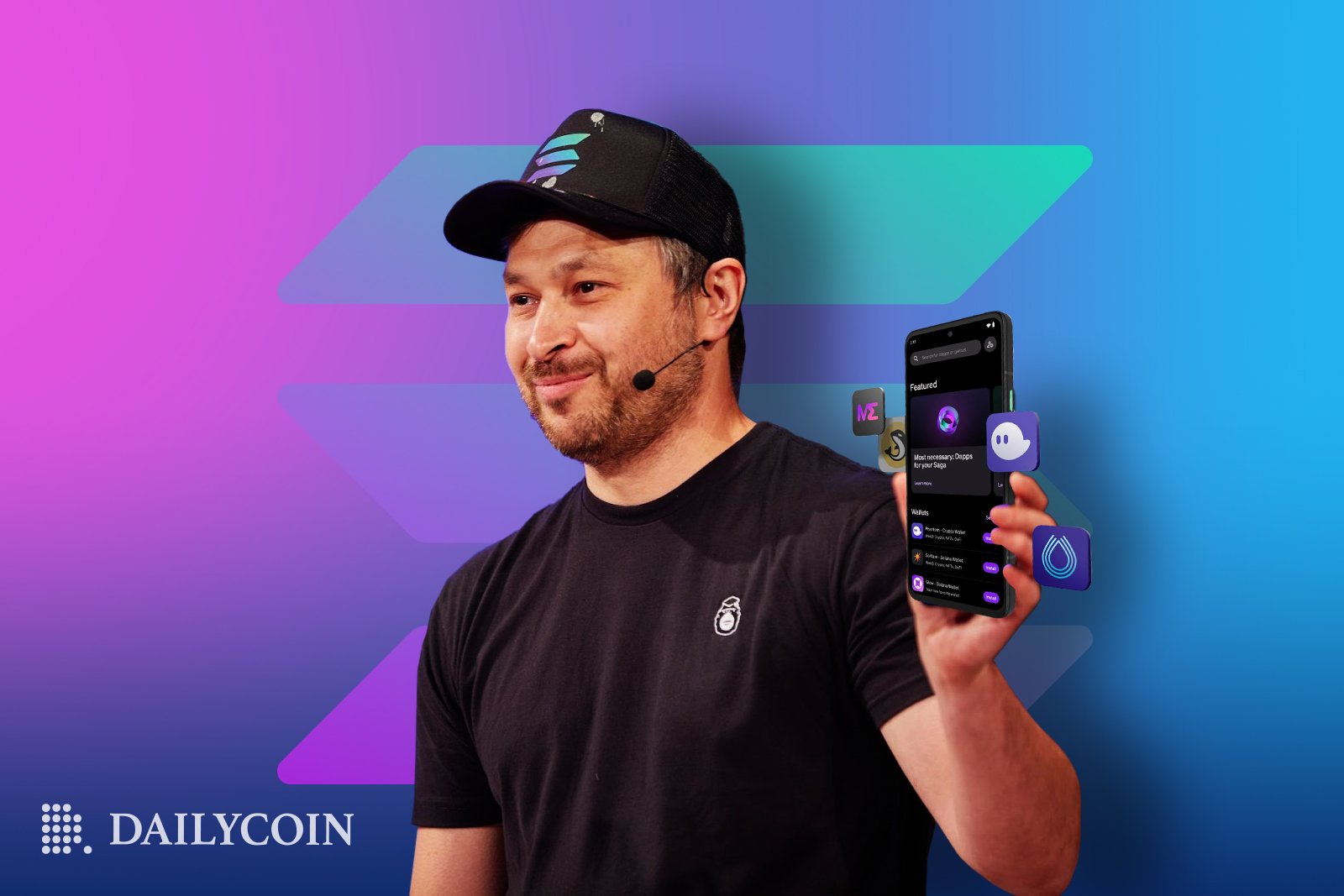
- Solana Co-Founder Anatoly Yakovenko criticizes Google and Apple duopoly.
- Proposes leveraging crypto technology to reduce huge 30% fees.
- Is crypto really the answer to app store monopolies?
In the realm of app stores, the duopoly of Google’s and Apple’s app stores has been unchallenged for years. Their app curation and a handsome 30% revenue cut have raised questions about fairness and stifling innovation.
Anatoly Yakovenko, co-founder of Solana Labs, has recently prompted a debate after highlighting the unfair duopoly power of these two companies. His proposal: use crypto to disrupt their dominance. But can blockchain and Solana’s app store be viable alternatives?
Cryptocurrency as a Solution to App Store Monopoly
On Tuesday, May 12, Anatoly Yakovenko, Solana Labs co-founder, voiced a critical stance on the current state of mobile app distribution dominated by Google and Apple. Highlighting the excessive 30% commission these giants extract from mobile gaming revenues, Yakovenko underscores the detrimental impact this has on creating new games and innovation.
With over $100 billion flowing through the mobile gaming sector annually, the loss attributed to app store fees significantly stifles app development. What is more, Apple, in particular, has implemented harsh policies against crypto apps, taking them down outright and imposing its 30% fee on all NFT sales.
Sponsored
Yakovenko proposes a radical solution to address these issues, suggesting that crypto could offer a viable alternative to the duopoly. He highlighted Solana Mobile, with its dApp Store, as an example of this model.
Is Solana’s ‘dApp’ Store a Viable Alternative?
In its documentation, Solana Mobile highlights how its model differs from traditional app stores. The Solana App Store is designed around decentralization, a core tenet of blockchain technology.
Sponsored
The apps are published as non-fungible tokens (NFTs) on the Solana blockchain, allowing developers to retain ownership and control over their creations. What is more, Solana Mobile does not charge any fees for app publishing, transactions, or revenue other than the Solana Network fees themselves.
While developers can publish the apps on-chain by themselves, this does not mean that the apps automatically appear on the Solana App Store. Instead, devs have to manually request a review by the Solana Mobile team, subject to their curation policies.
This is important, as without access to the dedicated app store, users will have trouble accessing the apps, even if they are on the Solana Network unless they have the necessary technical skills.
For that reason, the Solana App Store review process introduces a point of centralization in this model, mirroring traditional app stores. Once the App Store reaches scale, Solana Mobile can apply additional fees.
These factors all mean that, at this point, Solana’s App Store is not a fully decentralized alternative to traditional web stores. However, competition among blockchain platforms has the potential to shift app on-ramps to a more decentralized state eventually.
On the Flipside
- The Solana dApp Store’s current fee-free model is a major selling point for developers disillusioned with the high fees of traditional app stores. However, the long-term sustainability of a completely fee-free model remains uncertain.
- Solana’s dApp Store is not the only Web3 app store; however, it is the only one with a dedicated mobile platform.
Why This Matters
The Solana dApp Store’s attempt to offer an alternative to the Google-Apple duopoly showcases a need for tech solutions that put the power in the hands of the users and developers. Blockchain technology is a potential solution for this issue.
Read more about Apple’s takedown of crypto apps:
Why Do Crypto Apps Keep Disappearing From the Apple Store?
Read more about how Solana’s network activity compares to BNB:
